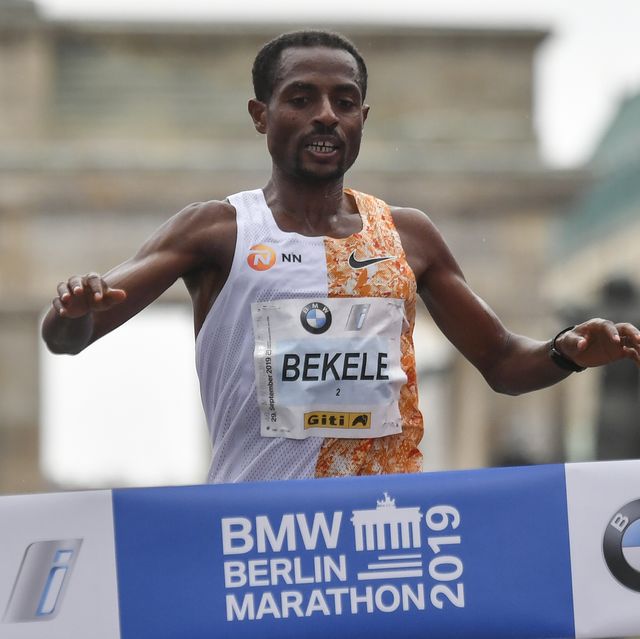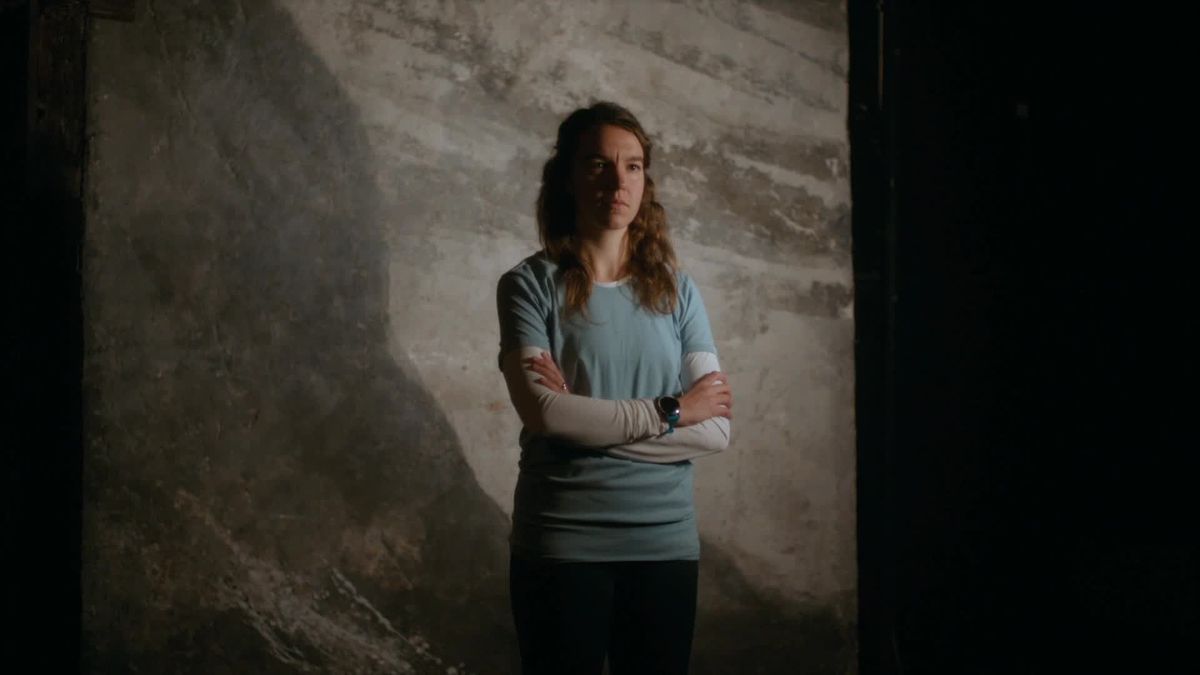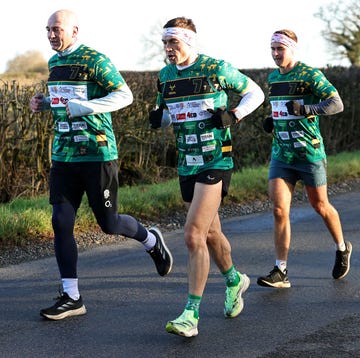- A year after Eliud Kipchoge smashed the marathon world record in a time of 2:01:39, Ethiopian Kenenisa Bekele almost took the record himself, winning in a time of 2:01:41.
- The 37-year-old holds the 5,000- and 10,000-meter world records and nearly set the marathon record three years ago in Berlin, missing the mark by six seconds.
Kenenisa Bekele narrowly missed Eliud Kipchoge’s epic world record by a two frail seconds in Berlin on Sunday, winning an astounding and almost miraculous Berlin Marathon in 2:01:41.
Ahead of the imaginary Kipchoge for much of the race, Bekele recovered from a bad patch at 31K to destroy the challenge of a new Ethiopian generation and go to the very edge of supplanting a record we all thought was out of sight.
“I don't give up. I have had difficult injuries, until only three months ago, but I am happy to run my personal best,” he said after the race. “I had a tight hamstring at 31K and had to slow down, but then it recovered and I was able to retake the lead.
“I knew I was very close to the record, but I couldn’t quite make it. Before the race, I did not expect a world record, so I am very happy to take 80 seconds off my personal best.”
It was an Ethiopian sweep of the podium, with Birhanu Legese taking second (2:02:48, a PR of more than a minute) and Sisay Lemma in third (2:03:36).
Legese, who won Tokyo this year, looked to have the race in his grasp, and maybe the world record, when Bekele dropped off at 31K. Legese bounced along punchily while Bekele looked heavy and anxious. But just after 34K, the legend’s flowing rhythm came back as Bekele went past Sisay Lemma to take second place. Sooner than seemed possible, Bekele hauled back Legese and flew into the lead just before 35K.
“Kenenisa is a very strong athlete. He had a problem with the leg, he dropped back, and then he came up again. And that was it. But I ran my personal best,” Legese said.
Resting heart rate.
At 40K, Bekele’s 1:55:30 was—unbelievably—two seconds ahead of Kipchoge a year ago. But that was where Kipchoge last year unveiled the last of his secret weapons, accelerating from kilometer splits around 2:54/2:55 to a 2:48/2:44 between 40K and 42K. Bekele, for all his track speed, could not quite emulate that.
He blasted the seemingly endless length of road between the Brandenburg Gate and the finish line, with us all on our feet, watching the ticking clock. But it ticked twice too often for Bekele to add the marathon world record to the 5,000-meter and 10,000-meter records that he has held for 15 years.
“People were saying my career was over. I wanted to show that I can still race well. I knew that although my training was not perfect, I was going much better than last year,” he said. “I believe I can go faster. And maybe even I will run the Olympic marathon—but I have not decided.”
Three years ago in the 2016 Berlin Marathon, Bekele missed the then world record by six seconds. Today it was two. His consolation—along with winning 40,000 Euros and adding 30,000 Euros for running under 2:03:30—is a place in history for running the world’s second fastest marathon, and, more important, for sealing his status as the greatest distance runner of all time, even ahead of Kipchoge and Haile Gebrselassie, across the whole range of track (three Olympic gold medals, five world championships, plus the two still-standing world records), cross-country (where he has won 11 world gold medals) and the marathon.
Bekele’s ability to recover from setback is well proven. In the 2008 World Cross-Country Championships in Edinburgh, he lost a shoe in Scottish mud, turned back to dig it out, and clawed his way up through the field to win. A year before that, his fiancée suffered sudden death during a training run with him, a trauma he also managed eventually to put behind him. He is now married with three children.
Right from the start today, Kipchoge was an invisible presence. The lead pack’s first 5K split exactly replicated the 14:24 that opened his epic world record here a year ago. Then, outrageously, this year’s aspirants upped it, reaching 10K in 28:53, eight seconds up on Kipchoge’s 2018 split.
Fearlessness? Folly? They held that eight-second lead to 15K (43:29 to Kipchoge’s 43:37), and at halfway (1:01:05) they were still ahead. It was as if the words “negative split” had never crossed their consciousness. There were five there to halfway—Bekele and Legese always looking positive, plus Lemma, Leul Gebrselassie (all Ethiopia), and Kenyan Jonathan Korir.
Soon it was only three, as Gebrselassie and Korir drifted back. When Bekele did the same, it all seemed over. How wrong can you be? No one expected today’s Berlin Marathon to match last year’s in excitement or significance. No one even thought about a world record. Again, how wrong can you be?
Behind all the world-record excitement, there were two encouraging American performances. Matt Llano, in 14th place, ran a one-minute PR of 2:11:14, and Haron Lagat was 19th From then on it was Bekele versus Kipchoge.

















